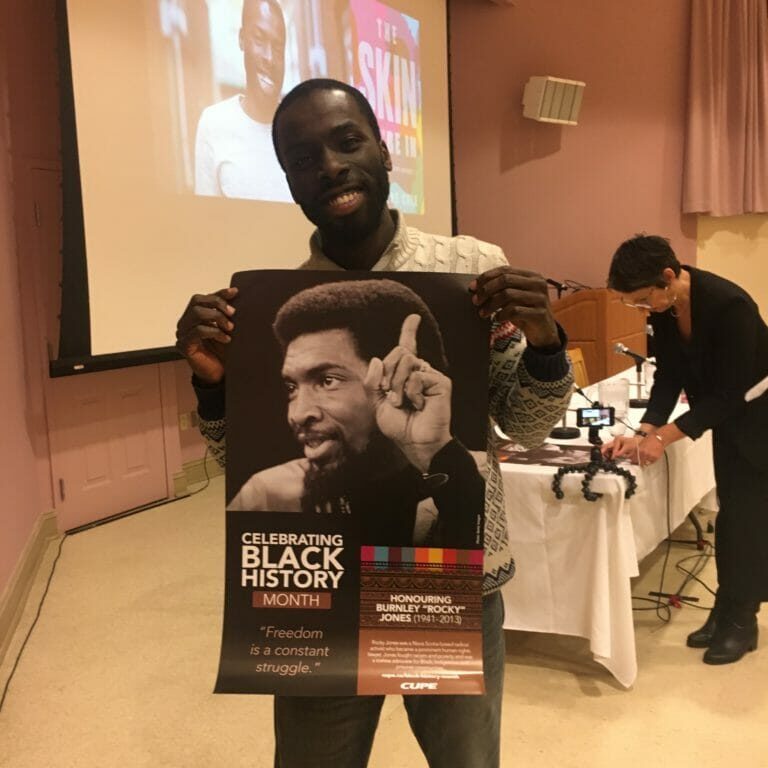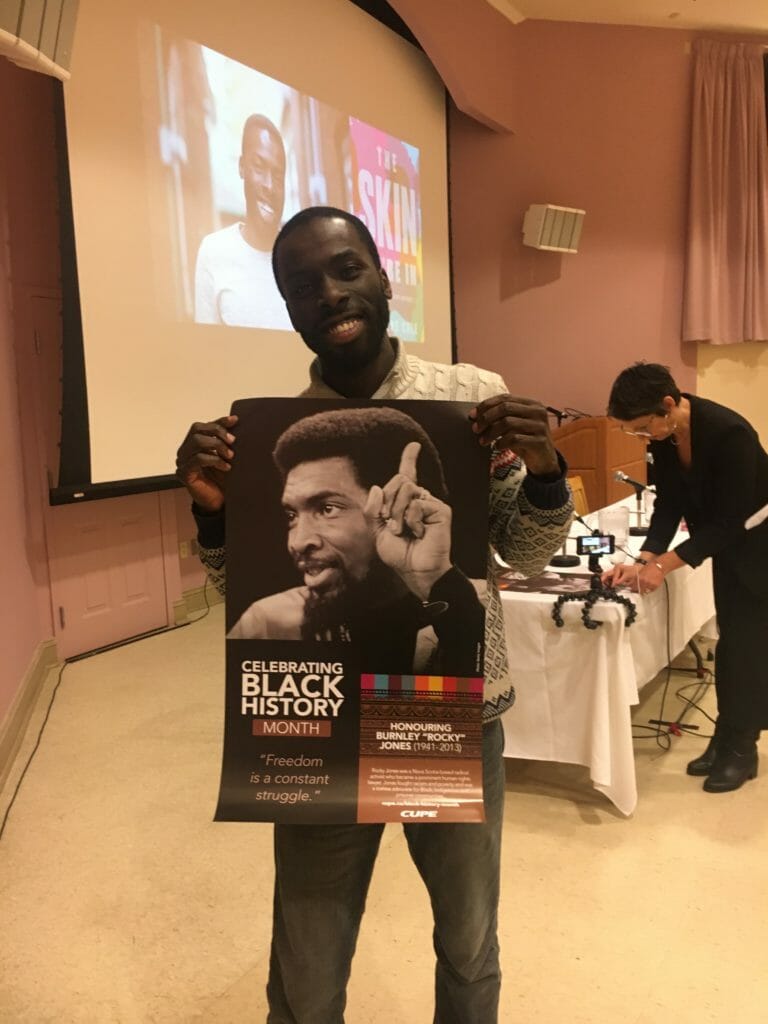
Desmond Cole’s year of Black activism
The Toronto-based writer came to Halifax to launch his new book
Desmond Cole is one of Canada’s strongest forces in the fight against police street checks and carding. The Toronto-based journalist and activist launched his new book at the University of King’s College on Feb. 13. The book, The Skin We’re In, studies racism, anti-Blackness and police brutality in Canada, throughout the year 2017.
“I am beyond any possible expression of how special this is. This is literally a dream come true for me,” Cole said at the launch.
Cole, a former Toronto Star columnist, named the book after his 2015 essay for Toronto Life, “The Skin I’m In,” in which he described being carded over 50 times by Toronto police. The piece went viral.
Then, in May 2017, Cole left the Star after being told he was violating the paper’s policies on journalism and activism. He’d spoken out against racial profiling and carding at Toronto Police Services Board meeting. “I stand up for the children of this city that you guys refuse to protect, particularly the Black children,” he said in part.

On Feb. 13, Toronto-based journalist and activist Desmond Cole released his book, The Skin We’re In. Photo by El Jones
The book
The title to his book is symbolic to its message. “The ‘we’ for me is Black people,” said Cole at the Halifax launch. “Anybody who wants to be included in that liberation struggle can be included in that ‘we’ whether they are Black or not.”
The book follows Cole’s experiences of activism and racism in each month of 2017. Every chapter was dedicated to a month of the year where he encountered, or participated in, acts of Black resilience.
Its subtitle reads A Year of Black Resistance and Power, which was misprinted by his publisher in January, leaving out the word “Black.” Cole said, “our Blackness needs to be visible.”
The literary activist said, at the Halifax launch, the book is about surviving as a Black person in a white, colonialized country.
“What’s happening right now is more or less normal. So Black people getting stopped in the street, Black people getting deported after being here since they were children, the prisons being full of Black and Indigenous people even though we make up a tiny fraction of the population, more or less normal,” he said. “That’s how it is. It shouldn’t be like that.”
Having signed a book deal in 2015 with Doubleday Canada, Cole’s book has now been published and sold across the country. It was released in January, and Halifax was Cole’s fourth stop on the book launch tour, after Ottawa, Toronto and Montreal. According to CBC, The Skin We’re In was the #1 Canadian nonfiction book for the week of Feb. 9-15.
Hundreds of Haligonians filled up the University of King’s College Alumni Hall to hear Cole speak, alongside local poet El Jones and advocates Lynn Jones and Fatuma Alyaan.
At the launch
Among the crowd in Alumni Hall was Santina Rao, a Black woman who was tackled by Halifax Police in the Mumford terminal Walmart in January. She was accused of shoplifting by putting items onto her child’s stroller while still in the store. At the event, Rao was called to the floor and received a standing ovation.
Activism and literature was one of the evening’s main topics of discussion. The panelists talked about the power of stories and how the stories we tell can influence political and social change.
Comparative literature expert at King’s, Laura Penny, said literature is activism. “Whoever says literature isn’t political sucks at reading,” she said. “Toni Morrison said that, anybody who says literature isn’t political is just endorsing the status quo.”
Anti-racism advocate (and one of Cole’s panelists) Lynn Jones said when it comes to Black resilience, activism never ends. “You call it activism whereas I call it survival.”
Cole said he wanted to tell a story that is current and yet connects back to the history of Black people in Canada.
“Our stories are part of this narrative of being Canadian as well.”






